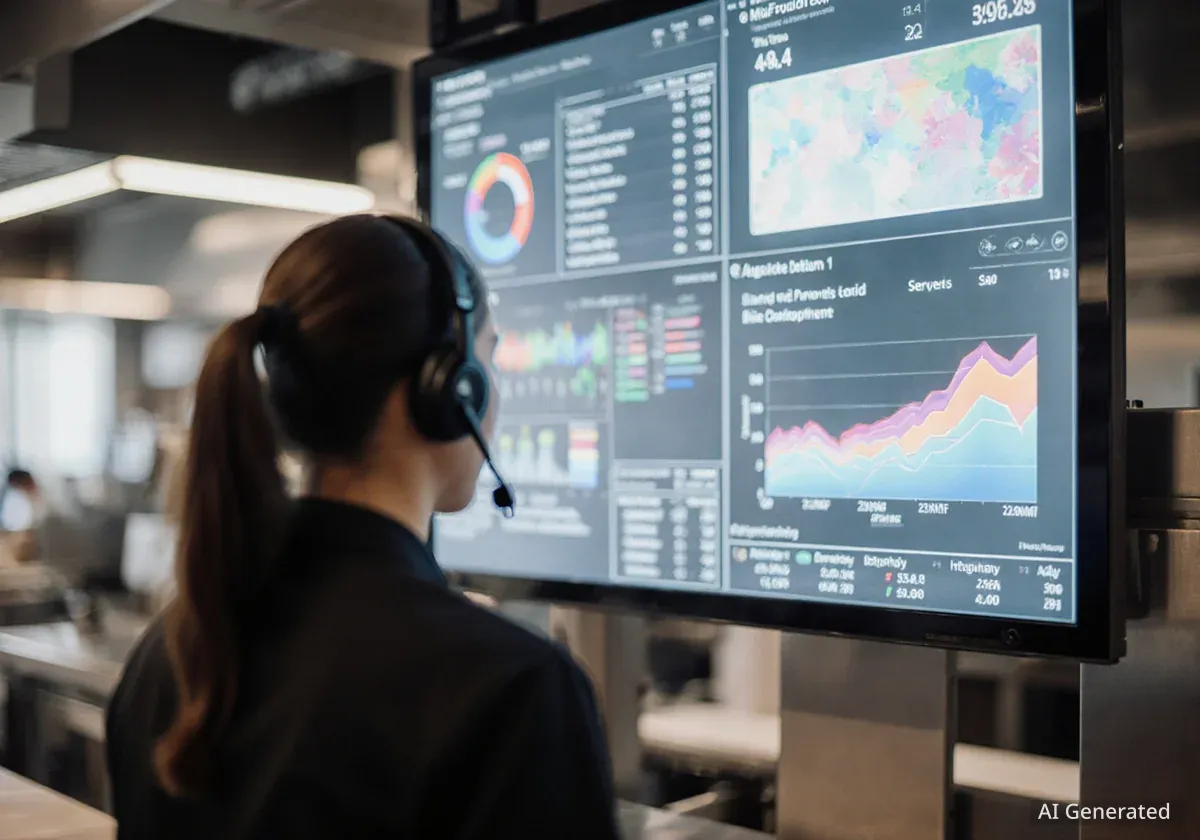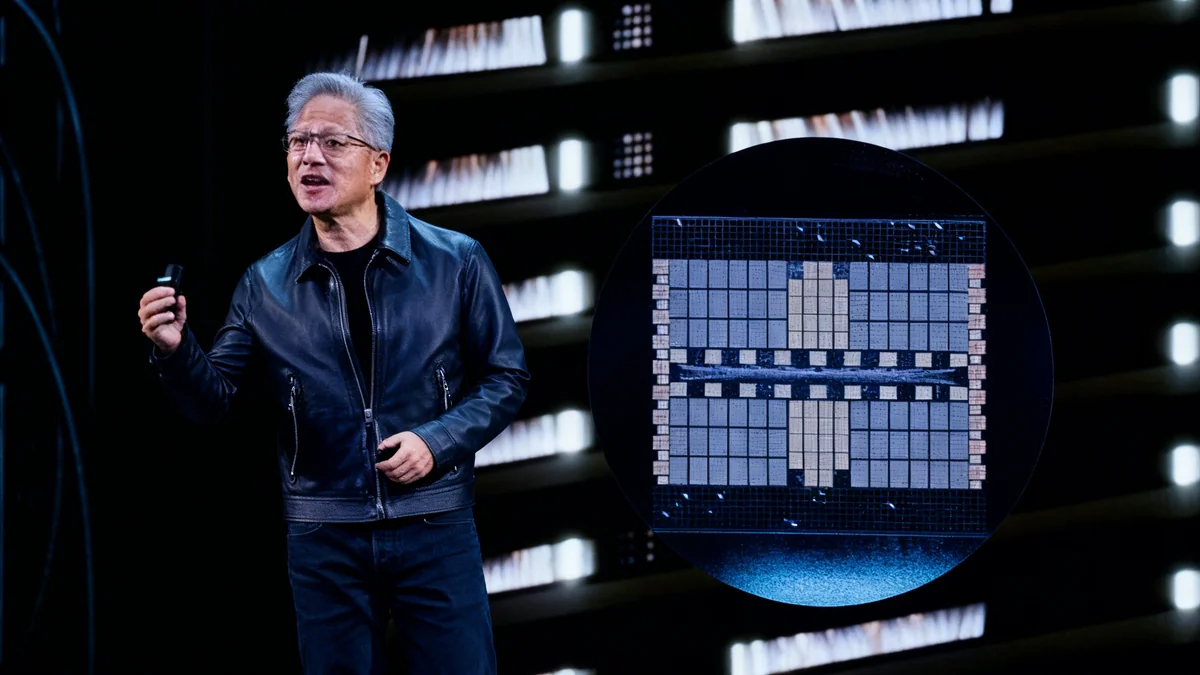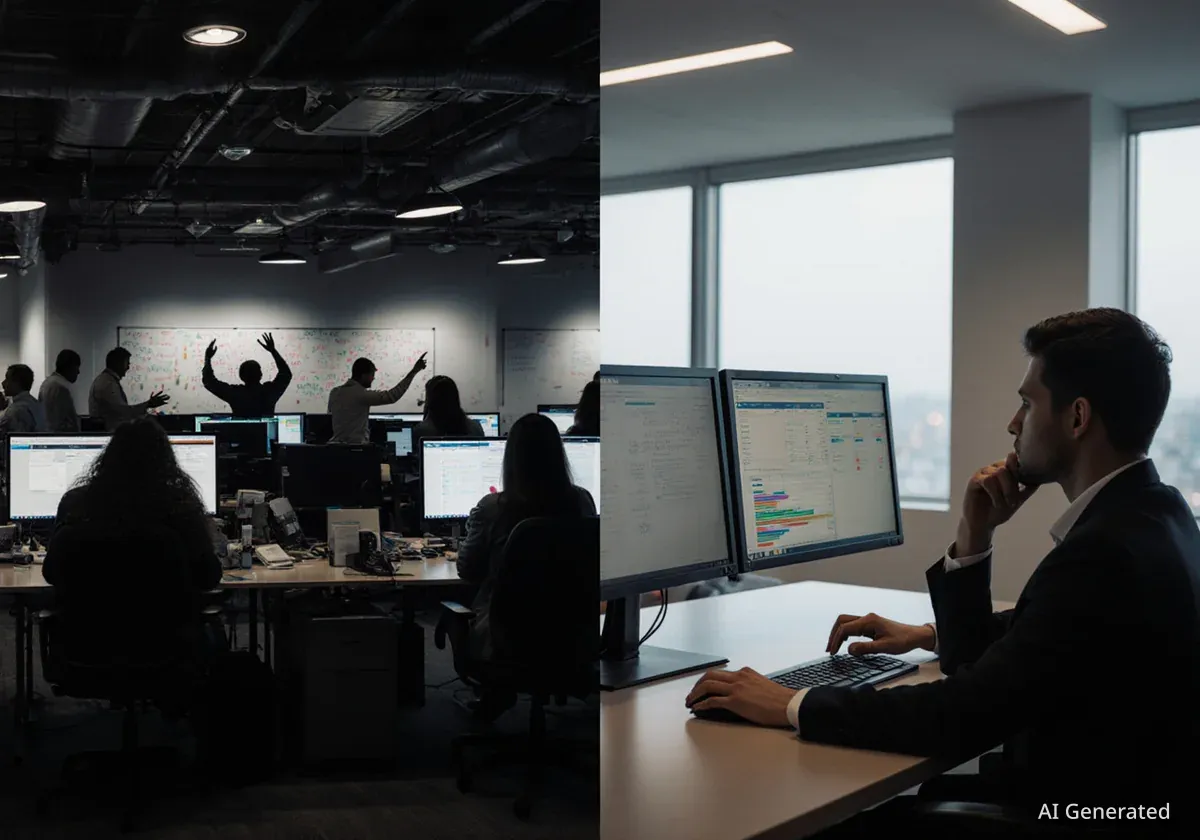Global consulting firm Accenture is implementing a new workforce strategy centered on artificial intelligence, prioritizing the training of existing staff while planning to dismiss employees whose roles cannot be adapted to the technology. The move coincides with the company reporting significant growth in its AI-related services, which generated $2.7 billion in revenue during the 2025 fiscal year.
Key Takeaways
- Accenture is focusing on upskilling its workforce to meet the demand for AI expertise.
- Employees in roles that cannot be augmented by AI and who cannot be reskilled will be dismissed.
- The company's AI consulting services generated $2.7 billion in revenue for the 2025 fiscal year, a threefold increase.
- This workforce shift is part of a broader business reoptimization plan that will incur charges of $865 million.
- Accenture has increased its number of trained AI professionals from 40,000 in 2023 to 77,000 in 2025.
A New Mandate for AI Proficiency
Accenture has made artificial intelligence a core component of its business and workforce planning. During an analyst call discussing the company's fiscal year 2025 results, which concluded on August 31, CEO Julie Sweet outlined the new approach. The company's primary strategy is to invest in training and development to equip its employees with necessary AI skills.
However, for staff in positions where AI integration is not feasible or where reskilling efforts are deemed unviable, the company is taking a more direct approach. Sweet explained that Accenture would be dismissing these individuals as part of an accelerated timeline to acquire the necessary talent.
"We are investing in upskilling our reinventors, which is our primary strategy," Sweet stated. "We are exiting on a compressed timeline, people where reskilling, based on our experience, is not a viable path for the skills we need."
This initiative is a key part of a larger "business reoptimization" strategy. The company anticipates this restructuring will result in one-time charges amounting to $865 million over a two-quarter period. The goal is to align the company's talent pool with the high-growth area of AI consulting.
Understanding Business Reoptimization
Business reoptimization is a corporate strategy that involves restructuring operations, processes, and workforce to improve efficiency and align with new market demands. In Accenture's case, it means shifting resources and personnel toward its rapidly growing artificial intelligence services division.
Financial Success Drives AI Focus
Accenture's strategic pivot is heavily influenced by the financial success of its AI division. The company's investment in generative and agentic AI services has yielded substantial returns. According to Sweet, revenue from these services tripled from the previous fiscal year, reaching $2.7 billion in fiscal year 2025.
Bookings, which indicate future revenue, have also shown impressive growth, nearly doubling to $5.9 billion. This demonstrates strong client demand for Accenture's AI expertise and consulting services.
Accenture's 2025 Fiscal Performance
- Total Revenue: $69.7 billion (a 7% increase)
- Net Income: $7.8 billion (a 5% increase)
- GenAI Revenue: $2.7 billion (a 3x increase)
- GenAI Bookings: $5.9 billion (nearly a 2x increase)
The company's overall financial health remains strong, with total annual revenue climbing 7 percent to $69.7 billion and net income rising over 5 percent to $7.8 billion. This financial stability provides the foundation for its significant investment in AI and the accompanying workforce restructuring.
Building an AI-Ready Workforce
To support its growing AI business, Accenture has been aggressively expanding its internal talent pool. The company is actively hiring individuals with advanced AI skills while simultaneously training its existing employees.
The number of trained AI professionals on staff has nearly doubled, growing from 40,000 in 2023 to 77,000 in 2025. Additionally, Accenture reports that 550,000 of its employees now possess a foundational understanding of AI technology. This two-tiered approach aims to create both a deep bench of specialists and a broad base of AI-literate staff across the organization.
Sweet emphasized that while some employees would be let go, the company is increasing its overall hiring globally to bring in more specialized talent. "Our number-one strategy is upskilling," she reiterated, but added that the company must move quickly to exit personnel where a viable skilling path doesn't exist to make room for new skills.
Navigating Market and Policy Changes
While Accenture's AI division is thriving, the company faces challenges in other areas. Sweet noted a slowdown in procurement from U.S. government contracts due to cost-cutting measures by the new administration. However, she indicated that contract activity is beginning to recover and expressed optimism about the company's partnership with data analytics firm Palantir.
The company also addressed potential concerns regarding upcoming changes to the H-1B tech visa program. According to Sweet, Accenture is well-positioned to handle any adjustments. Approximately 5 percent of its U.S. workforce is on H-1B visas, and the company does not anticipate significant disruptions from the policy changes, barring any major unforeseen government actions.





